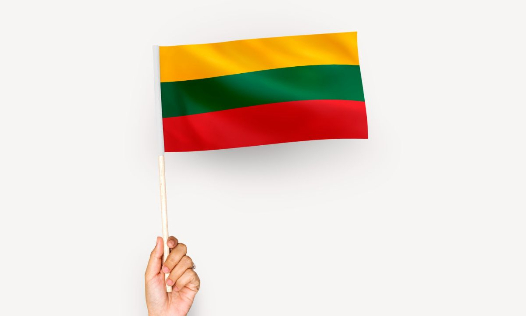Payment is being processed. Please do not refresh or close this page until your payment is complete.
 Book an Appointment
Book an Appointment

Lithuania's labor market is facing a unique challenge—a significant shortage of skilled workers. With a strict work visa quota and high demand in sectors like manufacturing, technology, and healthcare, the country is turning to foreign talent.
Lithuania is experiencing an unusual labour market scenario—while many countries face high unemployment, Lithuania is dealing with a labour shortage.
The demand for skilled workers is so intense that Lithuania hit its annual work visa quota for non-EU and non-EEA workers in 2024, leaving many companies struggling to fill vacancies. With 2025 on the horizon, the country is preparing for another challenging year in managing its labour needs and work visa policies.
Lithuania Labor Shortage Explained
Lithuania’s economy is growing rapidly, but the country’s shrinking workforce is a significant concern. Here’s why there’s a high demand for foreign labour:
• Ageing Population: The ageing demographic is leading to increased demand for healthcare professionals and replacements in the workforce.
• Young Talent Emigrating: Many young Lithuanians are moving abroad for better career opportunities, creating gaps in the local labour market.
• Booming Economy: Key industries like manufacturing, technology, and construction are expanding, driving demand for specialized skills.
Work Visa Options in Lithuania
Lithuania uses a quota system to regulate the number of third-country nationals entering the labour market. This system limits the number of non-EU and non-EEA workers companies can hire, leading to a competitive rush to secure permits. Here are some key work visa options for Lithuania:
1. EU Blue Card
The EU Blue Card offers highly skilled workers a pathway to live and work in Lithuania, with benefits like fast-track residency and family reunification.
• Eligibility: Non-EU professionals with a higher education degree or at least five years of professional experience.
• Validity: Up to 3 years, with possible extensions.
• Benefits: Access to a wider European labour market, family reunification, and a pathway to permanent residency.
2. Temporary Residence Permit for Employment
This residence permit allows non-EU nationals to work in Lithuania temporarily, providing the opportunity to live and work for a set period.
• Eligibility: Non-EU citizens with a job offer from a Lithuanian company.
• Validity: Up to 2 years, renewable.
• Benefits: Ability to live and work in Lithuania; can lead to permanent residency.
3. Seasonal Work Visa
Designed for temporary labour, the seasonal work visa enables foreign workers to fill jobs in agriculture, tourism, and other seasonal industries.
• Eligibility: Non-EU nationals seeking temporary work in sectors like agriculture or tourism.
• Validity: Up to 6 months within a year.
• Benefits: Quick processing and suitable for short-term employment needs.
4. Intra-Company Transfer (ICT) Visa
The ICT visa allows employees of multinational companies to transfer to a Lithuanian branch, fostering mobility within the same organization.
• Eligibility: Employees transferring to a Lithuanian branch of a multinational company.
• Validity: Up to 3 years for specialists, 1 year for trainees.
• Benefits: Seamless transfer within company branches, ideal for career development.
Work Permit Application: Key Steps for Foreign Workers
Applying for a work permit in Lithuania requires careful preparation. Here are the main steps:
1. Job Offer: Secure a job offer from a Lithuanian employer, which is necessary to initiate the work permit process.
2. Application Submission: The employer submits the work permit application to the Migration Department.
3. Approval: Once approved, the work permit allows the applicant to obtain a residence permit.
4. Visa Issuance: After the work permit and residence permit are granted, the applicant can apply for an entry visa to enter Lithuania.
How Employers Can Adapt to the Labor Shortage
Employers in Lithuania face a tough road ahead as the labour market continues to tighten. To remain competitive, companies will need to implement creative solutions:
• Flexible Work Arrangements: Offering remote work options to attract a broader range of applicants.
• Targeted Recruitment: Focusing on recruiting specialists in sectors with the highest demand.
• Partnerships with Educational Institutions: Collaborating with universities and training centres to develop future talent.
Final Words
As Lithuania faces a labour shortage heading into 2025, skilled professionals will find opportunities, while businesses navigate hiring challenges. Understanding work visa options and the country’s talent demand is key to success in this evolving labour market.
Source: https://travelobiz.com/lithuania-labor-shortage-visa-options-in-demand-jobs-in-2025/